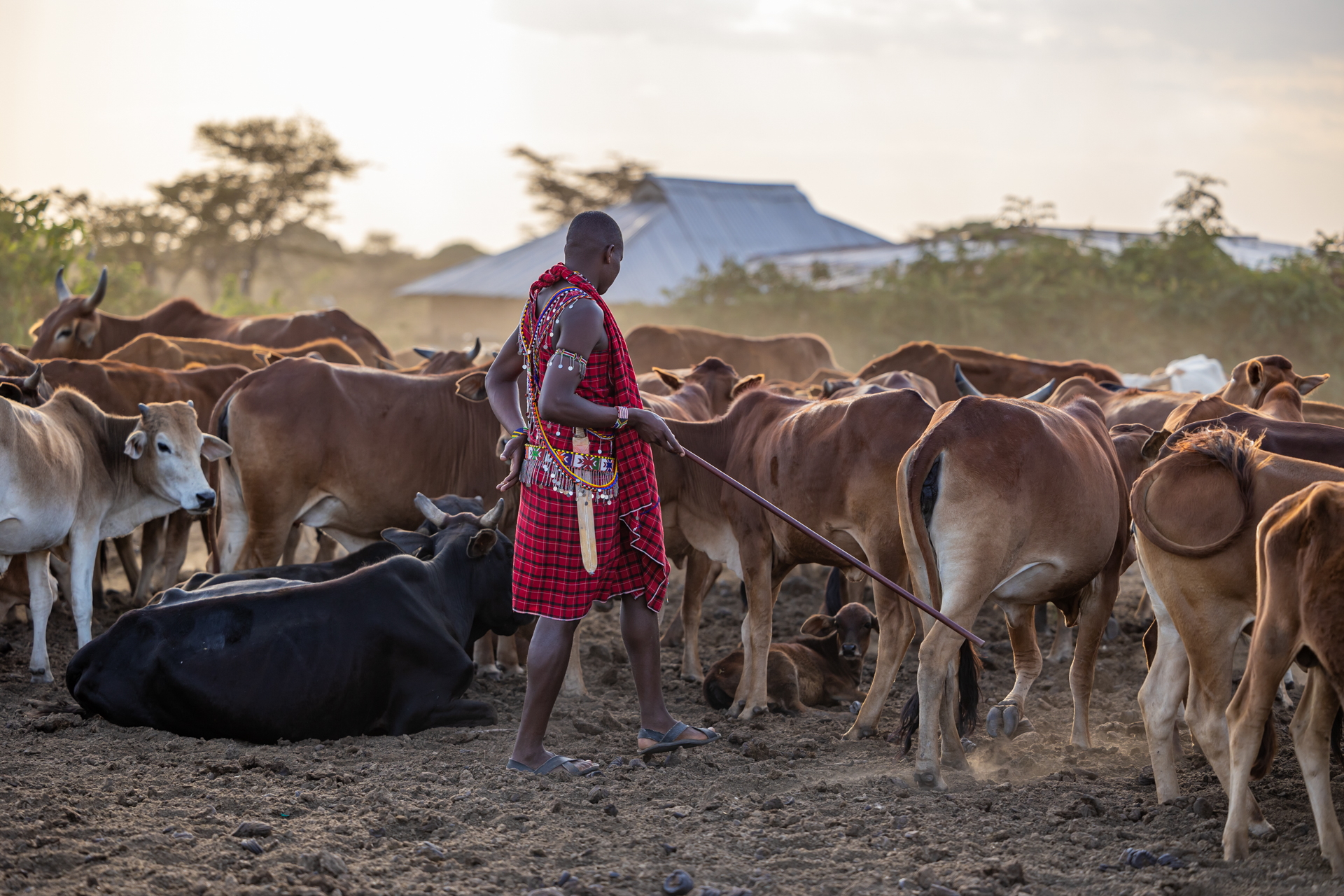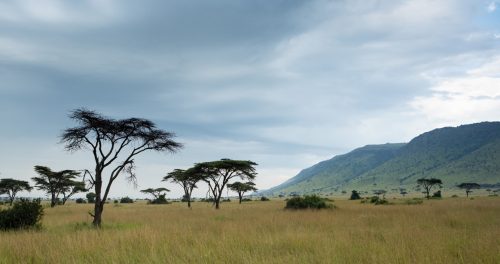
I grew up close to the Mara River in the northern part of the Maasai Mara, in a rather well-known village called Emarti. We were a family with four boys but there were lots of other young boys who lived nearby. It’s the job of the boys to look after the family’s herd of sheep and goats so we would all gather on the grazing fields each day with our goats and sheep until there were more than 500 animals altogether — and just a few young boys to look after them.
All day we would play games with each other. One I can remember is that we would draw a square in the ground where about four boys would have to wait. Then, the remaining boys would have to try to pass through the square without being touched.
It can get very hot in the Mara, so after all this running and playing we would go down to the Mara River to swim and let our sheep and goats drink. There are dangerous animals by the river but that didn’t bother us. Actually, we liked it if there were crocodiles and hippos, then we could show our bravery.
We would throw stones at the crocodile and get close enough to the hippos sunbathing on the banks, to rap them with our rungus and scare them away. But it was not just so that we could swim, we needed to protect our herds who would drink from the river and could sometimes get eaten by crocodiles if we were not careful.
To Maasai, cows are very important and it is only when you are older that you are responsible for herding your family’s cows. One of the biggest challenges all Maasai face these days is finding enough grass for their cows to eat. This is especially true in the dry season from June — September.
At Angama Mara, we are on the lands of the Siria, one of approximately 22 subgroups of the Maasai. Our guests might see our neighbours herding their cows near Angama’s football field or by the little stream that flows down the escarpment along the road into the Triangle. The land near Angama Mara has always been an important grazing area for the Siria and we are happy that it still is.
When there is a lot of grass, the cows are not allowed in the Mara but during the dry season, the Mara Conservancy allows them to enter the edges of the Triangle to feed their cattle and to use the natural salt licks found there. We are not so scared of the wild animals hurting our cows. Most Maasai men have met with lions when they were looking after their cows and they can scare them off by shouting and waving their rungus.
Even though they are not in the Mara, the Maasai on the escarpment around the lodge can also face those challenges and the danger of losing their cows to lions. At Angama Mara, right near where the Siria Maasai live, we have seen lions.
The good thing is these days, Angama is working with the Mara Conservancy and the local community so if there is a case of such conflict, the Conservancy will compensate the owner of that cow. Before this arrangement, if a lion killed a cow, the owner would feel forced to revenge kill that lion. This new compensation scheme is a really positive idea that we have never experienced before and I hope it will mean more harmony between the Maasai and the wildlife.
As you will gather from Alfred's story, the land on which Angama Mara sits has a history that goes back far longer than the day we laid down our first brick. Out of respect for it and the people to whom it belongs, we always strive to find the balance of being a good neighbour and offering a safari experience that our guests will enjoy.
Filed under: Stories From The Mara
Subscribe for Weekly Stories
Comments (0):

Angama Safari Camp